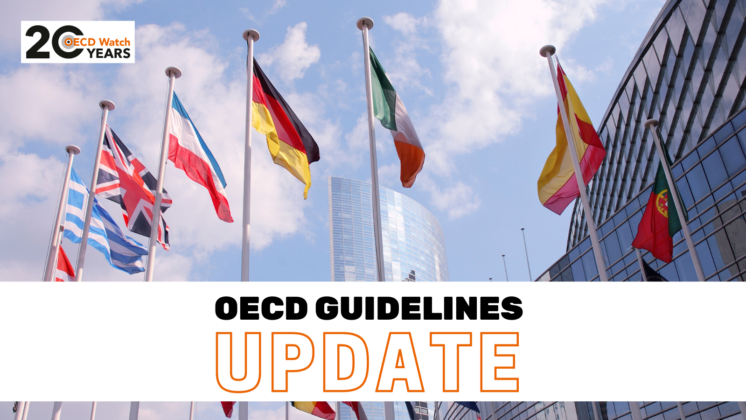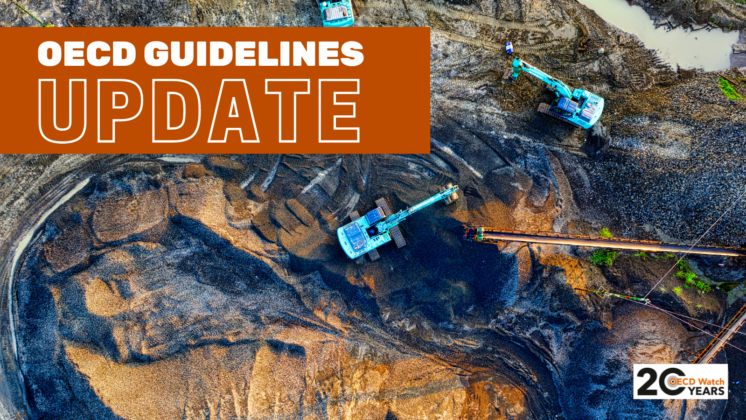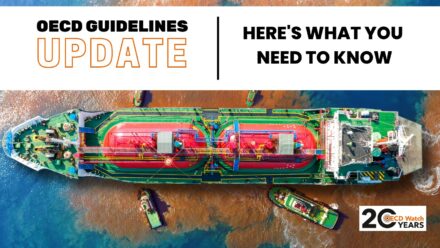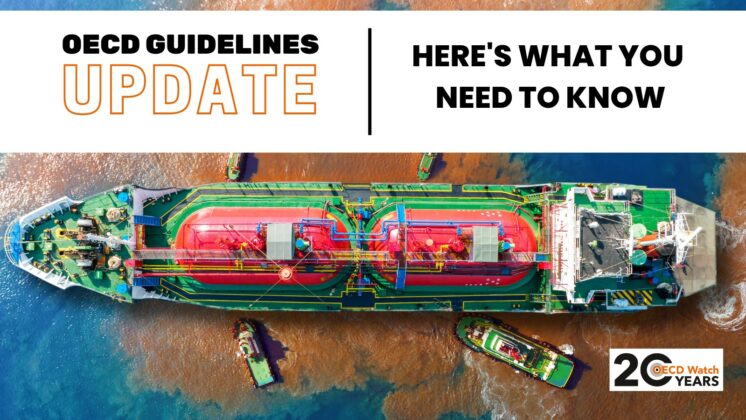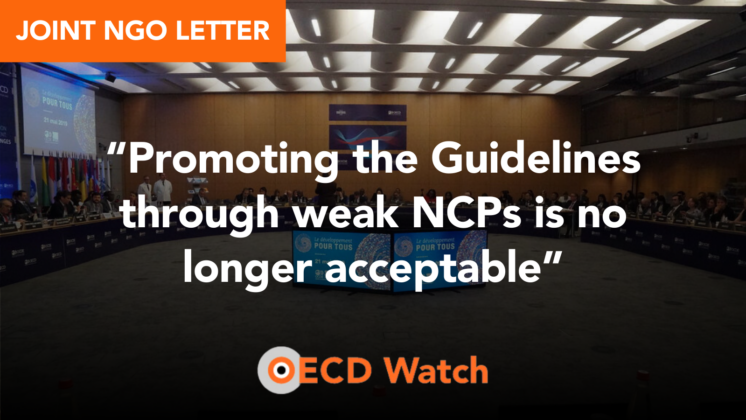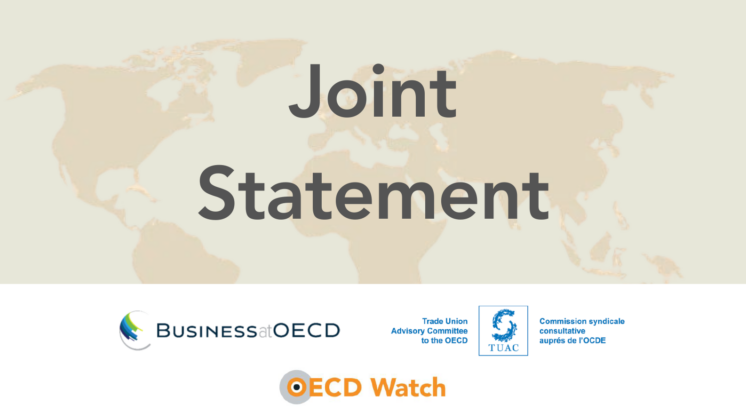As the European Union’s three legislative bodies sit down to reconcile their proposals for a draft directive on corporate sustainability due diligence, legislators have a brand-new tool to support their negotiation: the newly updated and renamed OECD Guidelines for Multinational Enterprises for Responsible Business Conduct (Guidelines). The EU directive will oblige EU states to set binding rules on EU-operating multinationals to both identify and address environmental, human rights, and labour rights harms associated with their operations. Binding due diligence obligations have long been a goal of policymakers, civil society, and unions. But EU-level disagreement over whether and to what extent the due diligence duty should apply to impacts downstream of the enterprise could jeopardize the effectiveness of the future directive – and create conflict with international norms, fragmentation of expectations for business, and uncertainty for corporate implementation. In parallel with the directive drafting process, this past February, the 25 EU governments adhering to the OECD Guidelines affirmed their intention to align domestic legislative and policy initiatives with the Guidelines. EU policymakers should keep their commitment to ensuring coherence between domestic due diligence laws and international standards – particularly the newly updated Guidelines – by ensuring the full up- and downstream scope of due diligence.
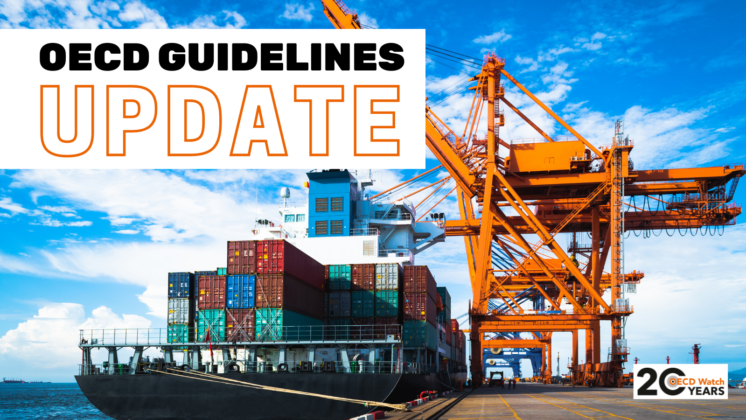
Longstanding normative affirmation of the downstream scope of due diligence
As OECD Watch explained in a December 2022 statement, the applicability of due diligence to downstream impacts – those associated with an enterprise’s product or service after it has left the enterprise’s hands – is securely established in international norms and practice, and strengthened in the recent update of the Guidelines.
The 2011 UN Guiding Principles on Business and Human Rights call for due diligence over impacts caused or contributed to by an enterprise’s own activities, or directly linked to its operations, products or services by business relationships in its value chain. The 2011 version of the OECD Guidelines, modified that year to align with the Principles, likewise covered “all sectors of the economy”, including sectors such as investing, financing, and consulting where impacts are most felt downstream, and list examples of downstream business relationships such as “franchising, licensing or subcontracting”. The 2018 OECD Due Diligence Guidance for Responsible Business Conduct explains that due diligence should cover actions of business relations in all stages of the value chain, including downstream entities such as franchisees, licensees, joint ventures, clients, contractors, and customers. The OECD’s sector-level due diligence guidance extensively addresses downstream impacts of, among others, the financial and agriculture sectors.
Meanwhile, over ten years of State practice in implementing the OECD Guidelines has produced numerous precedents of EU and non-EU governments expecting enterprises to address impacts arising downstream, such as following their: provision of financing for palm oil companies (Netherlands); installation of hydropower turbines in a hydroelectric dam (Austria); sale of drugs used in lethal injections (Netherlands); sale of tear gas to an authoritative state (France); provision of an online marketplace used for sale of harmful products (Poland); and supply of military equipment to Russia (Denmark); among others.
Reaffirmation of the downstream scope of due diligence in newly updated Guidelines
This week the OECD released updated Guidelines that assert even more clearly the downstream applicability of due diligence expectations. The updated text calls for companies to conduct due diligence over downstream business relationships such as sub-contractors, franchisees, investee companies, clients, and joint venture partners, as well as “entities in the supply chain that receive, license, buy or use products or services from the enterprise” (including foreseeable improper or misuse). The new Guidelines assert that enterprises can contribute to harms caused by natural person users or consumers and call on enterprises to use and build leverage over business relationships to address impacts linked through them, including by taking measures “prior to and at the point of sale”. The updated Guidelines still cover all sectors (including the financial sector) equally without applying different expectations to sectors classed as “high risk”.
Limitations on downstream coverage in the EU directive proposals
Although the international norms are clear, two of the three EU proposals diverge notably regarding downstream coverage: the European Commission’s proposal seeks up- and downstream due diligence only of impacts of “established business relationships”, a dangerous limitation that would depart significantly from international norms and exclude the vast majority of adverse impacts in global value chains. The European Council seeks due diligence over downstream distribution, transport, storage and disposal, but not use – again a limitation that would exclude numerous adverse impacts. Meanwhile, all three proposals exclude coverage of certain parts of the financial sector.
Concerned by discussions to limit the value chain scope of sustainability due diligence, last March the UNOHCHR, ILO, and OECD issued a joint public letter to the European Commission noting “Coherence with the substantive elements of international standards can help bolster the impact and effectiveness of the EU’s efforts. For example, it can guard against box-ticking compliance approaches and overreliance on contractual assurances. It can also ensure that due diligence is embedded into enterprises’ oversight and management systems, covers the entire value chain, is sufficiently risk-based, dynamic, proportionate, and based on proactive and meaningful stakeholder consultation”. In September the UNOHCHR issued a separate paper on the importance of keeping downstream impacts in the directive’s scope, noting that failure to do so would “undermine the international consensus”, “not align” with international standards, “neglect significant human rights impacts”, “undercut the stated objectives” of due diligence, and “lag behind” the efforts of many companies themselves.
Conclusion
EU governments should heed the call of businesses, civil society, and the multilateral institutions that built the due diligence normative framework to align their domestic law with the OECD Guidelines, including its latest updated text. EU policymakers can’t go back on their stated intentions to advance policy coherence and a decade of their own practice promoting the Guidelines and due diligence guidance to downstream impacts. They should ensure the due diligence duty applies to the full value chain of all multinationals, full stop.
This blog was originally published by Business and Human Rights Journal Blog on 12 June 2023: https://www.cambridge.org/core/blog/2023/06/12/updated-oecd-guidelines-reconfirm-downstream-application-of-due-diligence/.

